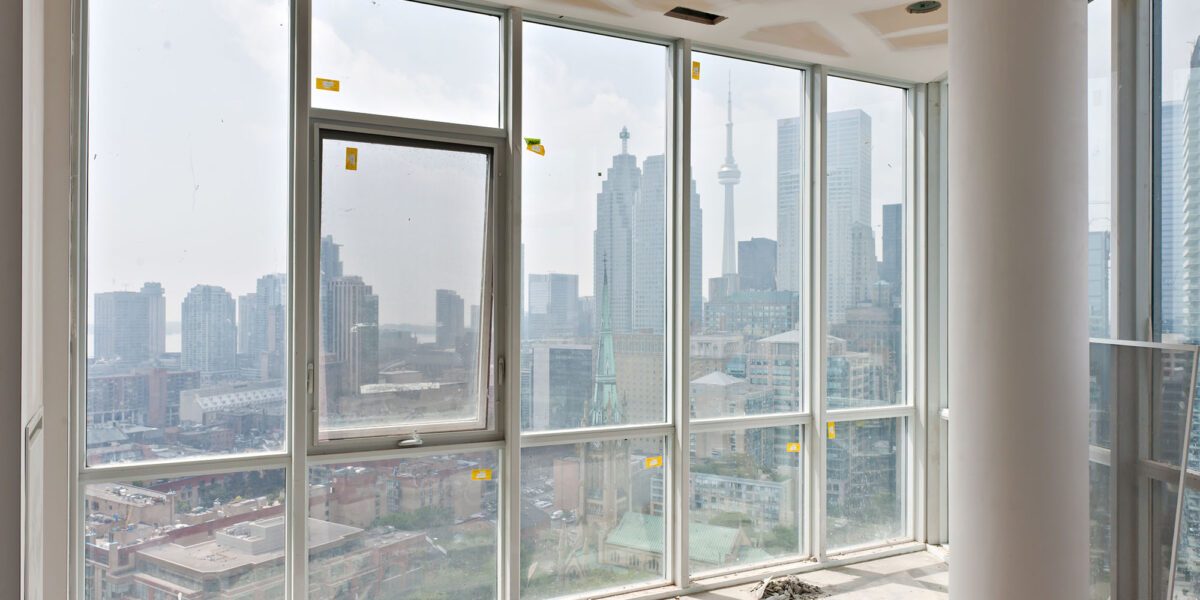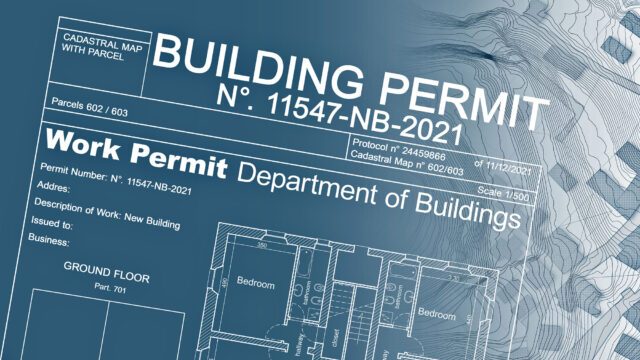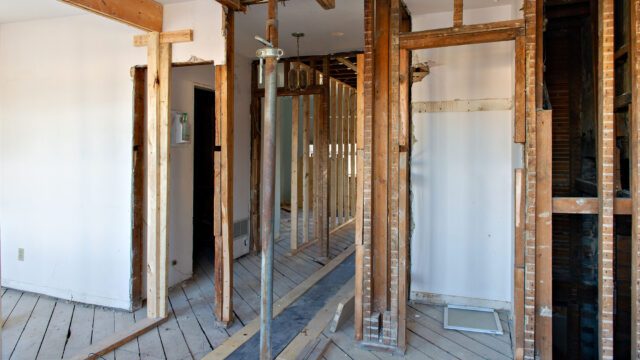
A Guide to Successful Commercial Renovations in Canada
As a professional commercial renovation company, UPPERAVENUE Construction Inc. knows the essential strategies for navigating zoning laws effectively to ensure a successful and compliant commercial renovation for our clients.

Understanding Zoning Laws and Their Impact
Zoning laws are regulations that dictate land use, categorizing areas into residential, commercial, industrial, or agricultural zones. These classifications play a significant role in determining property values, permissible activities, and overall community development. For instance, a commercial property situated in a well-zoned area for retail can see its value appreciate, while a similar property in a strictly residential zone may face restrictions that limit potential business activities. Understanding these laws is crucial for ensuring legal compliance and maximizing profitability during commercial renovations. This is where UPPERAVENUE Construction Inc. has years of experience.
In Toronto and the GTA, zoning regulations can vary significantly from one municipality to another, highlighting the importance of localized knowledge. Changes in zoning laws can occur due to community input or shifts in development trends, making it essential for business owners to stay updated on any modifications that could impact their renovation plans. For example, if a local government decides to rezone an area from industrial to mixed-use, businesses previously restricted may suddenly find new opportunities for expansion. Part of UPPERAVENUE Construction Inc.’s mandate in all commercial renovations is understanding and staying up-to-date with the changes that may affect your project.
Importance of Zoning Laws in Commercial Renovations
Zoning laws significantly influence the feasibility and profitability of commercial projects by dictating what activities can occur in specific areas. Local governments establish these regulations and manage zoning boards responsible for interpreting and enforcing the laws. For example, a restaurant looking to open in a commercial zone must comply with specific zoning regulations concerning noise levels, operating hours, and waste disposal, which can directly affect its operational success. Non-compliance with zoning laws can lead to severe consequences, such as fines or project shutdowns, underscoring the importance of thorough research before undertaking renovations. Ensuring compliance not only helps to avoid legal disputes with neighbours or local authorities but also fosters a smoother project execution. Moreover, certain zoning classifications can enhance property value by allowing more desirable business activities, such as establishing a café in a community commercial zone that attracts foot traffic

Types of Zoning Classifications
The commercial renovation process typically begins with conducting initial consultations to assess the client’s needs and the property’s existing conditions. This phase is crucial for establishing a clear understanding of the project scope and objectives. Following the assessment, the planning phase involves creating designs, setting a budget, and obtaining the necessary building permits. For example, if a restaurant is looking to renovate its dining area, it must consider local health and safety regulations while planning the new layout.
Once the planning is complete, the next step is bidding and contractor selection, ensuring that quality craftsmanship and adherence to timelines are prioritized. UPPERAVENUE Construction Inc.’s dedication to quality, safety, and communication ensures that the renovation will proceed in a timely manner. Execution of the renovation involves several stages, including demolition, construction, and final clean-up. After the renovation, a post-renovation follow-up is essential to address any potential issues and ensure client satisfaction. Throughout the renovation process, clear communication among all stakeholders is vital to prevent misunderstandings and ensure that the project runs smoothly.
The Zoning Process for Commercial Renovations
The zoning process for renovations usually involves several steps: pre-application planning, document submission, review, and approval. This process can take several weeks or even months, depending on the complexity of the project. A variance, which allows deviations from zoning requirements due to hardship conditions, can be an essential tool for businesses seeking flexibility in their renovation plans. For instance, a small retail shop wanting to expand its footprint may need to apply for a variance if the current zoning restricts building size.
Additionally, obtaining a Special Use Permit may be necessary for unique business operations that do not fit neatly within existing zoning laws. The application process may require public hearings, providing local residents an opportunity to voice concerns or support regarding the proposed renovations. Successful navigation of the zoning process often relies on clear communication and thorough documentation, which can help mitigate potential disputes and lead to a smoother approval process.
UPPERAVENUE Construction Inc. has the expertise to ensure that all of the proper applications, submissions and any other requirements are completed correctly in order to make sure that the process goes smoothly for our clients.
Resources for Navigating Zoning Laws
Local government websites, planning departments, and real estate professionals are valuable resources for obtaining zoning information. Engaging with local experts, such as urban planners and architects, can significantly enhance a business owner’s understanding and compliance with zoning regulations. For example, working with an urban planner can provide insights into how zoning affects future expansion plans and the implications of any proposed changes.
Additionally, various online resources and guides exist to help business owners better comprehend local zoning laws and application processes. Networking with local business associations can offer insights and shared experiences regarding zoning challenges, while attending workshops or seminars on zoning laws can further aid in understanding complex regulations. These resources are crucial for ensuring that renovation projects comply with both provincial and municipal zoning regulations.

Case Studies and Examples
Successful commercial renovations often hinge on thorough research of zoning laws to avoid conflicts and ensure proper site selection. For instance, Amazon HQ2’s location decision was heavily influenced by zoning regulations, illustrating the impact these laws can have on major commercial projects. By understanding the zoning landscape, businesses can make informed decisions that align with regulatory requirements and community expectations.
Moreover, there are numerous examples of businesses obtaining variances, which highlight the importance of presenting a compelling case to local zoning boards. A notable case involved a local bakery seeking to expand its operations into a residential zone, which required demonstrating that the new business would not negatively impact the neighbourhood. Real-life scenarios of businesses adapting their plans based on zoning feedback serve as valuable learning experiences, emphasizing the need for proactive engagement with local authorities.

Best Practices for Navigating Zoning Laws
UPPERAVENUE Construction Inc. stays informed about zoning changes because it is vital for successful commercial renovation ventures. Sometimes, it is advisable to consult an attorney familiar with zoning laws to effectively navigate complex regulations. We are in regular communication with local zoning boards which can aid in understanding evolving regulations and improving project outcomes. For example, a business owner who maintains open lines of communication with local officials may receive valuable insights that can help shape their renovation plans.
Additionally, keeping thorough documentation of all communications and submissions during the zoning process is critical for mitigating disputes. Establishing relationships with local officials can facilitate smoother navigation through zoning challenges, ultimately enhancing project success. By adopting these best practices, business owners can better position themselves to succeed in their commercial renovation efforts while ensuring compliance with zoning regulations.
In conclusion, UPPERAVENUE Construction Inc. can take care of a lot of the hassle of a commercial renovation project. We have the knowledge and experience to work through all of the zoning and by-law requirements for commercial renovations in our service area which covers most of central Ontario. Give us a call at 1-647-834-8346 to book your consultation.